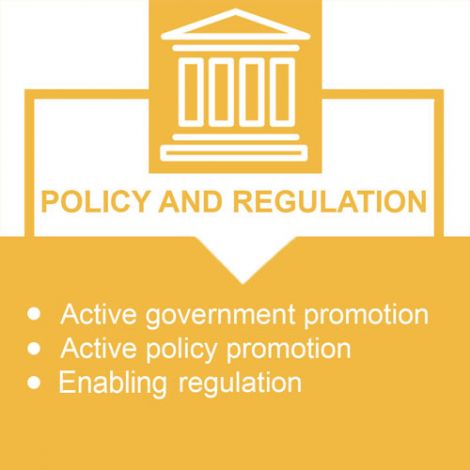Promoting the development of more inclusive digital economies
Digital transformation is an important driver of economic growth across the Asia-Pacific region. However, as the rate of digitalisation continues to increase, people at the base of the economic pyramid (BoEP) are often left marginalised with limited capabilities to engage and benefit from the digital economy effectively.
As part of its “Leaving No One Behind in the Digital Era” global strategy, the United Nations Capital Development Fund (UNCDF) has developed the Inclusive Digital Economy Scorecard (IDES) as a strategic performance and policy tool to support countries with the creation of inclusive digital economies.
In support of this strategy, over 2022 and 2023, the Griffith Asia Institute (GAI ), in partnership with the Foundation for Development Cooperation (FDC), has collaborated with UNCDF to identify case studies from the Asia-Pacific region that demonstrate practical examples of interventions that have successfully contributed to the development of more inclusive digital economies. Developed by experts from Griffith University in collaboration with policymakers, each case study provides advice and policy guidance while also promoting enhanced peer exchanges across the Asia-Pacific region to support evidence-based decision-making. The case studies are available below, with more being added to the database regularly. Please subscribe to receive updates on new case studies as they are published.
Each published case study is promoted widely through GAI and our partners through multiple media channels. We are always on the lookout for more case studies to develop and be included in this resource collection. If you would like to discuss working with us to develop a particular case study please contact Shawn Hunter.

Pillars

The extent to which the government actively promotes the development of an inclusive digital economy, as well as the policies and regulations in place that support digital finance and the digital economy.

The level of development of digital infrastructures (e.g. access to power, phone ownership, etc) and the status of digital payment ecosystems, including the level of interoperability and the openness of digital infrastructures for third-party players.

The status of a country’s innovation ecosystem, including the level of development and the synergies within the innovation community, the level of skills in the ecosystem, the presence of supporting infrastructure, and the availability of financing for innovation.

The active participation of the public and private sectors in digital and financial skills development, as well as the usage of digital channels for relevant skills development.
Case studies
Sustainable Development Goals
Griffith University is aligned with the United Nation’s Sustainable Development Goals (SDGs) and is committed to promoting decent work and economic growth, a more equitable and just society, and to promoting the values of peace, justice and accountability while fostering partnerships for the goals.
Category descriptions

Policy and regulation
Active government promotion
Government actively promotes inclusive digital economies through plans, statements or strategies.
Active policy promotion
Government agencies actively promote policies and regulations regarding inclusive digital economies.
Enabling regulation
Government regulates the financial sector, data and security infrastructure, competition, consumer protection, and telecommunication.

Infrastructure
ID infrastructure
Percentage of population with a national ID system that can be used for transactions and access to services.
Connectivity
Percentage of population covered by the mobile cellular network, a minimum 3G data network, and access to electricity with measurable network performance and electricity supply quality.
ICT usage and ownership
Percentage of population using the internet, owning a smartphone and owning a SIM Card with measurable affordability of services and devices.
Digital payment
Percentage of the adult population with a digital finance account, and with an active (90 days) DF account and the number of stakeholders with open and interoperable payment systems.

Innovation
Community development
The number of FinTech services as a percentage compared to the regional leader, ranking on the E-Government Development Index, growth of innovative companies and collaboration between universities and industry.
Level of skills
Skillset of graduates, ease of finding skilled employees, attitudes towards entrepreneurial risk, reliance on professional management and percentage of tertiary enrollment.
Supporting environment
The number of innovation hubs as a percentage compared to the regional leader, state of national cluster/innovation hub development, legal framework adaptability to digital business models and multistakeholder collaboration.
Financing
Availability of venture capital, financing of SMEs and availability of domestic credit to the private sector.

Skills
Basic skills
Adult literacy rate, mean years of schooling and expected years of schooling.
Digital literacy
Evidence of appropriate digital literacy curriculum at all levels of education, level of digital skills among the active population, the proportion of schools with internet access, and percentage of stakeholders offering digital literacy training to their customers.
Financial literacy
Existence of country-wide financial literacy campaigns or programs, appropriate financial literacy curriculum at all levels of education, percentage of the population that save at either a formal or semiformal institution, and ranking of stakeholder literacy training to customers.